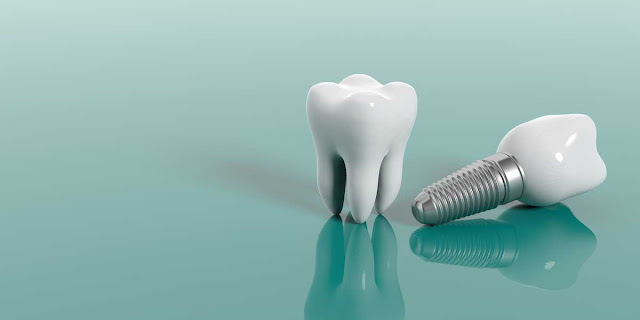A Chipped Tooth in Houston, TX has Multiple Fixes

What is a Cracked or Chipped Tooth?
Although the enamel (first layer of your tooth) is the hardest, most mineralized tissue in the body, it has certain limits to its strength. A chip means a small break in the tooth. There are different degrees when it comes to a broken-down tooth.
Common Risk Factors for a Chipped Tooth
The reasons for a chipped tooth can vary widely depending on your lifestyle, age, and several other factors mentioned below:
Night-time grinding also called bruxism
Facial trauma following an accident
Sports injuries
Cavities which are left untreated can cause a tooth to become brittle and break
Crunching on ice
Chewing a piece of hard candy
Using your teeth as tools (opening a can, pulling apart things, etc)
Old, large amalgam fillings, where the remaining tooth structure can become brittle over some time
A crooked bite, meaning it’s not balanced and some of your teeth take more pressure of each bite rather than being properly distributed across all the teeth

Self-care Measures
If the tooth is painful, take acetaminophen or any other over-the-counter pain medicine. Rinse your mouth with saltwater.
If the chip has caused a jagged edge, cover it with a piece of wax or sugarless chewing gum to keep it from cutting your tongue or the inside of your lip or cheek.
Eat soft foods and avoid biting down on the cracked or chipped tooth.
Signs of a Chipped Tooth
Complications of an untreated broken tooth can include:
Extreme pain (usually when eating or drinking)
Jagged edges can injure the tongue or lip
Hypersensitivity to hot and cold foods or drinks
Fever
Halitosis (bad odor) or awful taste in your mouth
Treatment for Fractures and Broken Teeth
Treatment for a fracture or a chipped tooth will depend on how severe the damage is. If a small piece of enamel broke off, the repair can usually be done in a single visit. A badly damaged or broken tooth may require complex procedures. A chip on one of the chewing surfaces of the back teeth is called a broken cusp. This type of chip is rarely painful, but it should be examined by a dentist.
Here are some ways your dentist may repair your broken tooth:
Dental Filling or Bonding
If the size of a chip is small, only restricting tooth enamel, the dentist may repair it with a filling. If the repair is to a front tooth or any of the teeth that show when you smile, the dentist will likely use a procedure called bonding, which includes a tooth-colored composite resin.
Dental Cap or Crown
If a significant piece of tooth breaks off or the tooth has a lot of decay, the dentist may grind or file part of the remaining tooth structure and cover it with a crown. A crown is required to restore the shape of the tooth and prevent further damage or decay. Permanent crowns can be made from metal, porcelain fused to metal, all resin, or all ceramic. Different types have different benefits. All-metal crowns are the strongest, while porcelain and resin crowns are more aesthetically pleasing.
If the entire top of the tooth is broken off but the root is still intact, the dentist or an endodontist may perform root canal therapy and place a dentine pin or a post in the canal, and then build the tooth enough onto which a crown can be made.
Dental Veneers
If a front tooth is chipped, a dental veneer can make it look natural and healthy again. A dental veneer is a thin shell made of all porcelain or a composite material that covers the whole front of the tooth (much like a false nail) to replace the broken part of the tooth.
Root Canal Therapy
If the enamel break is large enough to expose the pulp; the center of the tooth's nerves and blood vessels, bacteria from the mouth can enter and infect the pulp. If the tooth hurts, changes color, or is sensitive to heat, the pulp is probably infected. Pulp or nerve tissue can die and if it's not removed, the tooth can become infected and need to be extracted. Root canal treatment involves removing the infected or dead pulp, cleaning and disinfecting the root canal, and then sealing it.
Root canal treatment may be performed by a general dentist or a specialist called an endodontist. Most root canal therapies are no more painful than having a cavity filled. In most cases, the remaining tooth must be covered with a crown to protect the compromised tooth.
YOUR EXPERT DENTIST WITH UNMATCHED SERVICE
Here at Nu Dentistry, we understand that you’re busy, and we do everything we can to make sure your time with us is as smooth as possible. From the moment you walk through our doors and check-in, we take care of all the little details for you. You’re never in our waiting room longer than 5 minutes, and we take pride in having your time in the dentist’s chair as short as possible without losing any of our attention to detail. We are dedicated to patient-first service! In other words, YOU are number one at Nu Dentistry,
and our dedicated, personalized service guarantees your complete satisfaction. We perform everything in-house, so you never have to worry about referrals for another dentist or specialist. It’s our honest belief that dentists should not only be amazing at what they do but as convenient and accommodating for their patients as possible. We’re open Saturday so you never have to put off your visits or come in during work. If you are looking for a dental team that really puts your dental health first, contact our office at Restorative Dentistry Houston, Texas



Comments
Post a Comment